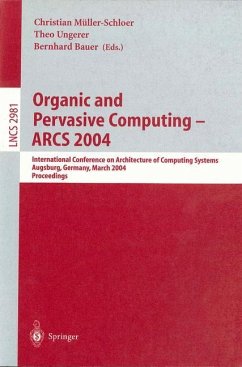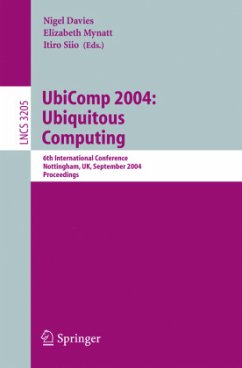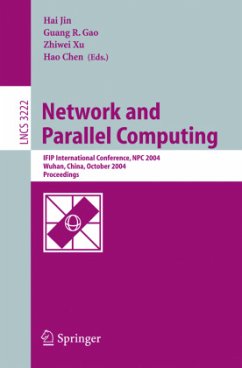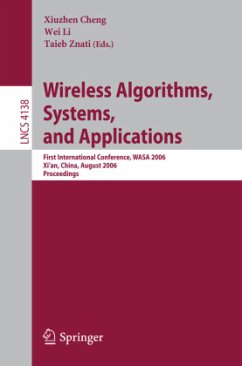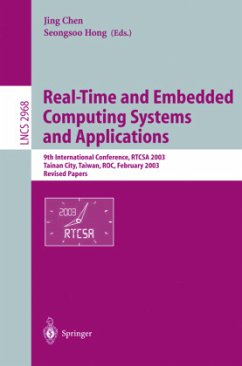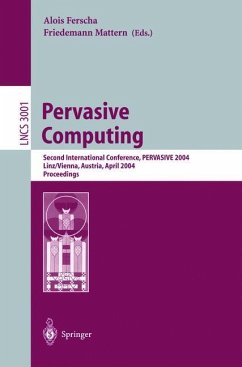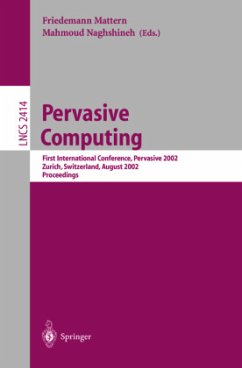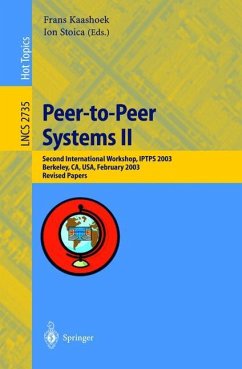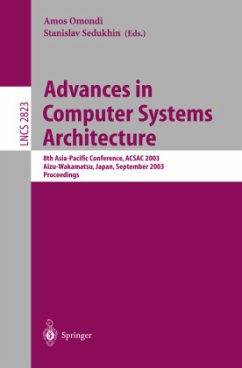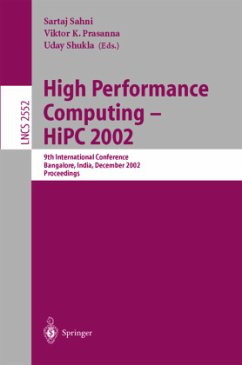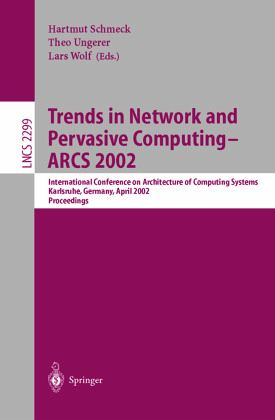
Trends in Network and Pervasive Computing - ARCS 2002
International Conference on Architecture of Computing Systems, Karlsruhe, Germany, April 8-12, 2002 Proceedings
Herausgegeben: Schmeck, Hartmut; Ungerer, Theo; Wolf, Lars

PAYBACK Punkte
20 °P sammeln!
Future processorswill become smaller, provide higher performance, and consume lesspowerthantoday sdevices.Suchprocessorswillsparko?newapplicationsin particularintheareaofeverydayconsumerdevices.Personaldigitalassistants, mobile consumer devices, and various smart personal appliances will soon be widelyused.Mobiletelecommunicationsystemswillincreasetheirbandwidth andwillyieldhighlyconnected,ubiquitouscomputingappliances.Ubiquitous computing induces a new way of thinking in system design: computers vanish into the background hidden behind the habitual human environment. These trends are the majo...
Future processorswill become smaller, provide higher performance, and consume lesspowerthantoday sdevices.Suchprocessorswillsparko?newapplicationsin particularintheareaofeverydayconsumerdevices.Personaldigitalassistants, mobile consumer devices, and various smart personal appliances will soon be widelyused.Mobiletelecommunicationsystemswillincreasetheirbandwidth andwillyieldhighlyconnected,ubiquitouscomputingappliances.Ubiquitous computing induces a new way of thinking in system design: computers vanish into the background hidden behind the habitual human environment. These trends are the major topics of ARCS 2002, the International Conf- ence on Architecture of Computing Systems , which continues and replaces the biennial series of German Conferences on Architecture of Computing Systems, organized by the special interest group on Computer and System Architecture of the GI (Gesellschaft fur Informatik German Informatics Society) and the ITG (Informationstechnische Gesellschaft Information Technology Society). The ?fteen predecessor conferences (except the EuroArch in 1993) were national conferences only, this is the ?rst German conference on computer architecture addressingtheinternationalresearchcommunity.Itservesasaforumtopresent current work by researchers from around the world, this year being focused on topics that aretruly changingourperception ofinformation processing Trends in Network and Pervasive Computing . The call for papers resulted in a total of 42 submissions from around the world.Everysubmissionwasreviewedbyfourmembersoftheprogramc- mitteeoradditionalreviewers.Theprogramcommitteedecidedtoaccept18 papers, which are arranged into 6 sessions with the result of a strong program. The two keynote talks by Ralf Guido Herrtwich (DaimlerChrysler Research) and Marc Fleischmann (formerly Transmeta, now Pixelworks) focus our attention on an innovative application area ( Communicating Cars: A Case for Ubiquitous Computing in the Automotive Domain ) and on innovative architectures ( - croprocessor Architectures for the Mobile Internet Era ).





